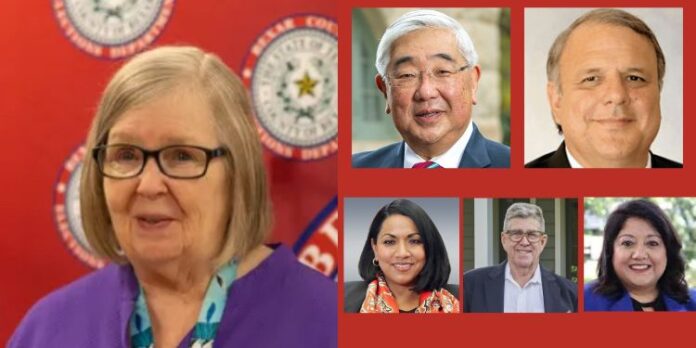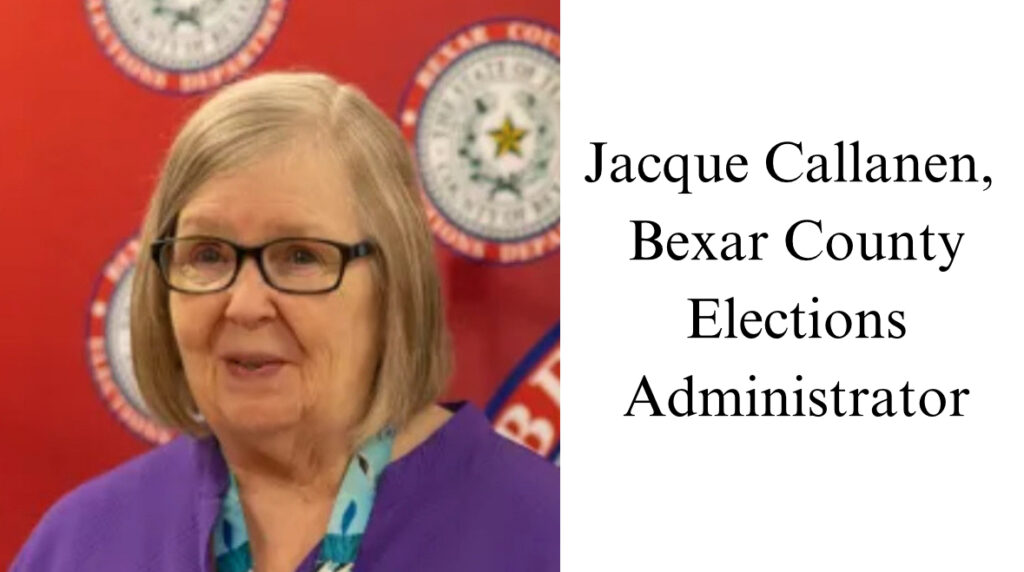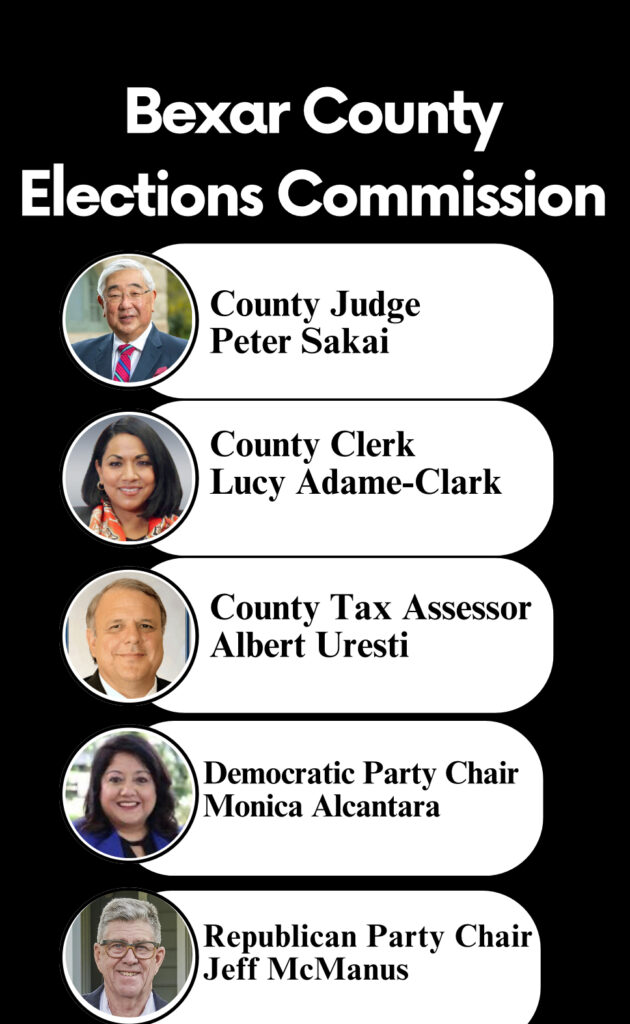“Critical Crossroads: Evaluating Bexar County’s Election Management Amid Calls for Reform”
Early voting has ended, the Primaries are over, with the final picture drawing near, a closer look must be taken at how are our elections being run, what causes low voter turnout and do we need a change in leadership?
Bexar County Elections is responsible for voter registration activities and election operations, throughout Bexar County, including 77 voting precincts, 53 political subdivisions, 20 independent school districts, 29 cities, 3 military installations – Lackland AFB, Joint Base San Antonio, Randolph AFB and 1,232,456 registered voters.
Leading the department is Elections Administrator Jacque Callanen, in office since 2005.
Questions have risen as to how much the office has done, in reference to the use of broadcast, print and social media platforms, to increase voter knowledge regarding changes in polling places or closures, new voting rules for requesting and submitting mail-in ballots, as well as what staffing needs are being unmet at specific polling locations.
Within the past, various news reports were broadcast that 19,000 mail-in ballots were requested and sent out, but, only 6,000 or so had been returned. Has there been any follow – up? This is not what voting rights advocates want to see nor hear.
Among the groups that have become frustrated with Ms. Callanen, and are pressuring County Commission members, are representatives of Volunteer Deputy Registrars, who reportedly feel that some of their voter registrations have been “unfairly rejected.”
The power to hire the Election Administrator, according to state law, is granted to a five member commission, which includes the following elected officials:
County Judge (Peter Sakai)
County Clerk (Lucy Adame – Clark)
County Tax Assessor – Collector (Albert Uresti)
Democratic Party Chair (Monica Alcantara)
Republican Party Chair (Jeff McManus).
Any member has the authority to call for a meeting, which could have began discussions, after the 2022 midterms and the state amendments vote, in 2023, where media reports have indicated that “public notice of the election was not posted online” within state timelines, which was in violation of state law.
Earlier this year, the Commission held a meeting – its first in over a decade- yes a decade, to reportedly discuss a succession plan, for the Election Administrator position. Judge Sakai reportedly has commented that they “want to treat her with dignity and respect.” Ms. Callanen has reportedly been asked to be specific, regarding when she intends to retire, but no definite date has been recorded yet. Critics have expressed that “the office needs to do more to expand voting access.”
What results are forthcoming? We continue to wait.
On another level, voting rights advocates have felt that “2024 should have been a golden opportunity for the Elections Administrator and her staff to demonstrate a new and vigorous commitment to voter engagement” and looking to support more voter education and participation.
Various elected leaders have voiced some of their concerns, but, what actions are being taken to address these concerns, have not been identified.
Within the past four years, lawsuits were brought, against Bexar County, by MOVE. Texas, and The Texas Civil Rights Project, regarding a reduction in the number of polling locations required for two election cycles.
At some point, in time, there should be a decision, based upon the needs of voters, here in Bexar County. A “meeting of the minds” is NOT going to cut it for the millions of registered voters, young and old alike! The city has protested and challenged Callanen’s seat for far too long. A judge has had to order Callanen to provide the amount of polls according to law, yet she is still here. Let’s see if the elected leaders in charge of Callanen’s position listen to their constituents.
Change can appear to be uncomfortable, but, the results become more acceptable, particularly when it is implemented for the greater good of the community.







